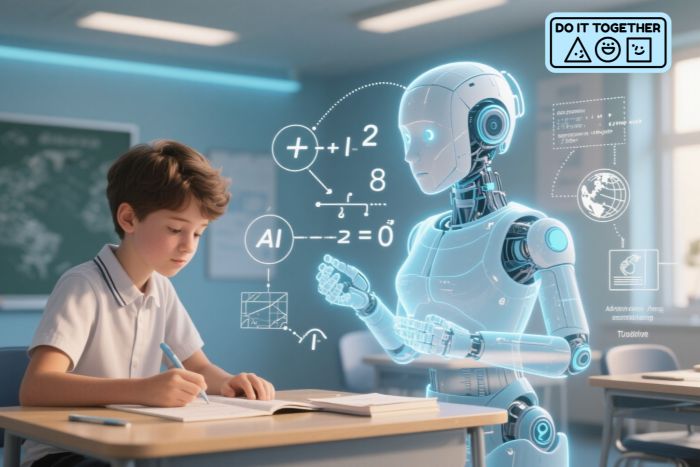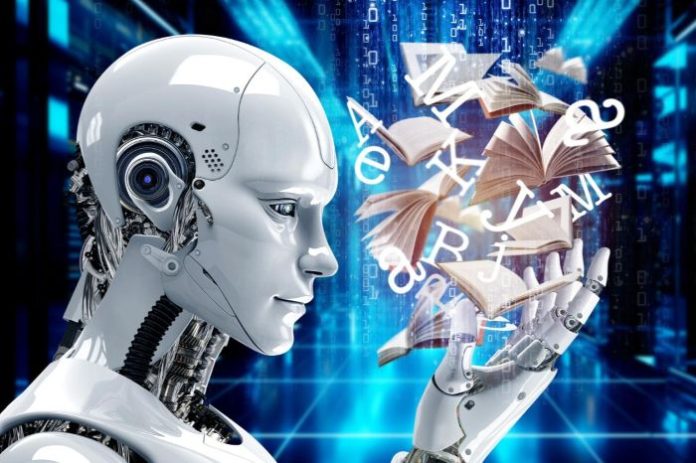Artificial intelligence is reshaping nearly every corner of modern life, and education is no exception. From automating administrative tasks to enabling adaptive learning experiences, AI is redefining how we teach, learn, and even think about knowledge itself. For today’s students, education is no longer limited to classrooms or textbooks; it’s guided by intelligent systems that learn from their habits, questions, and curiosity.
As we enter an era of personalized learning, the question is not whether AI will transform education, but how profoundly it has already and how AI learning tools like Question AI and other AI homework helpers are driving that transformation.
Key Takeaways
- AI transforms education by personalizing learning experiences and automating administrative tasks.
- Tools like Question AI analyze student learning patterns, making homework more engaging and tailored to individual needs.
- AI study companions promote active learning, enhancing critical thinking rather than rote memorization.
- These tools democratize education by providing access to quality learning resources for students in underserved areas.
- Balancing technology with human instruction is vital; ethical AI use should empower both learners and educators.
Table of Contents
From Automation to Personalization
The first wave of AI in education focused on automation—grading quizzes, organizing schedules, and managing virtual classrooms. But those were surface-level efficiencies. The real revolution began when AI evolved from an administrative assistant into a personal tutor and homework companion.
Modern tools such as Question AI or Khanmigo exemplify this shift. They don’t just deliver answers; they analyze how a student learns. Question AI, as an intelligent AI homework helper, can interpret handwritten equations or word problems from an image, then generate clear, step-by-step reasoning. This transforms a one-time question into a learning opportunity—an interaction that adapts to the student’s pace and comprehension level.
This evolution marks a crucial step toward personalized learning. AI study tools now tailor explanations to each learner’s unique understanding, offering hints instead of final answers and identifying where a student might be struggling before they even realize it themselves.
Enhancing Cognitive Engagement
One of the greatest challenges in education is keeping students cognitively engaged. Traditional homework apps often provide direct answers, which may solve the problem but not deepen understanding. AI study tools and homework companions are changing that dynamic.
Advanced platforms use machine learning models that replicate human reasoning patterns, breaking down complex problems into logical sequences. By explaining why each step works, these systems help students develop critical thinking skills instead of relying on rote memorization.
Question AI, for example, doesn’t just compute solutions; it guides users through the reasoning process. When solving algebra or geometry problems, the AI homework helper explains how each transformation or substitution fits within broader mathematical principles. The result is a more interactive, inquiry-based experience that promotes true comprehension and long-term retention.

AI as a Learning Companion
The most exciting development in this space is the rise of AI learning companions, digital partners that grow alongside the learner. Unlike static educational software, these AI study tools are conversational, intuitive, and emotionally intelligent.
Tools like Question AI embody this idea. Students can simply take a photo of a problem, type a question, or even converse naturally in a chat-style interface. The AI homework helper responds like a real tutor, providing not just the correct solution but also context, examples, and follow-up explanations.
This sense of dialogue matters. Studies show that when learners engage in active questioning, retention and problem-solving ability increase dramatically. By simulating a real conversation, Question AI makes studying less intimidating and more like discovering knowledge with a supportive homework companion.
Moreover, its multilingual support ensures inclusivity across diverse learners worldwide. Whether a student is solving algebra in English or physics in Spanish, Question AI maintains accuracy and context, bridging linguistic gaps and expanding access to global education.
Bridging Gaps and Expanding Access
AI-driven learning tools are not just enhancing how individuals learn—they’re also democratizing education. Intelligent tutoring systems and AI study tools are now available on smartphones, reaching learners in areas where qualified teachers or resources may be scarce.
With Question AI, accessibility becomes a cornerstone of learning equity. Its lightweight design and mobile compatibility mean that students in developing regions can access high-quality academic support without expensive hardware or subscriptions. The platform offers free daily use, with optional upgrades for advanced features—balancing inclusivity and sustainability.
This aligns with a broader educational mission: ensuring that quality learning is not a privilege but a universal right. When AI homework helpers are deployed ethically, they can reduce learning disparities rather than reinforce them.
Ethical and Human Considerations
Still, the rise of AI in education introduces new ethical and pedagogical challenges. Data privacy, bias in training datasets, and over-reliance on automation are valid concerns.
The key is balance; AI should augment human instruction, not replace it. Thoughtfully designed AI learning tools like Question AI handle data responsibly and limit personal information collection, requiring only minimal login details. Transparency and user control are essential to building trust between students, educators, and technology.
Ultimately, the role of AI homework helpers is to empower learners and teachers alike—creating a collaborative environment where human curiosity meets computational intelligence.
Conclusion
The transformation of education through AI is not a distant dream—it’s already underway. From personalized tutors to interactive AI homework helpers, artificial intelligence is redefining how knowledge is discovered and shared.
Tools like Question AI represent the new frontier of learning: accessible, conversational, and driven by understanding rather than memorization. Yet beyond technology, the true value lies in how these AI study tools inspire curiosity, independence, and confidence in students around the world.
As we continue to integrate AI into education, one principle must guide us: technology should illuminate the learning path, not replace the journey itself—and with learning tools like Question AI as a trusted homework companion, that journey becomes both smarter and more human.











